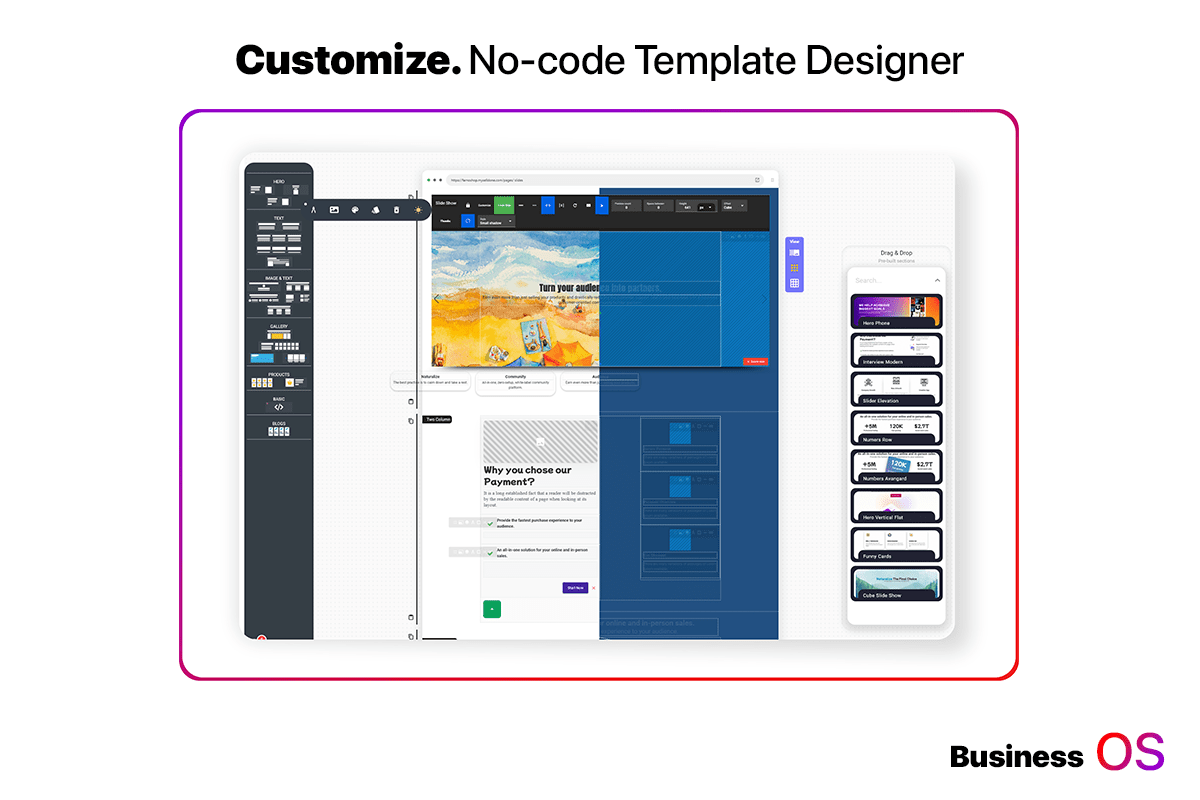Persuasive Copywriting Techniques and Killer Tips for Beginners

Copywriting is not an easy career. Especially if you're a beginner copywriter, it may seem very hard to understand exactly what you need to do now. Copywriting is like working a double-edged sword, you have to persuade a certain type of audience to take some kind of action while being careful not to sound pushy and scare away the potential clients.
If you're reading this article, it means you probably already know what copywriting is, but for those of you who don't know, let's go over the basics. So, let's begin.
What is Copywriting?
Copywriting is about writing persuasive materials for the purpose of marketing, a copywriting material persuades the audience to take some kind of action, whether it's purchasing an item, clicking on a link, completing a survey, etc. Copywriting is like a call to action (telling the audience to perform the desired task), on a global scale. A Copywriter's goal is to have an influence on the audience, as in making them think, have a certain feeling, or take action.
The text material is called a "copy", hence the person writing a copy is a "copywriter". The copy can have both written and spoken forms. The written form of the copy is printed or viewed online and the spoken form is the script for a video or a sound-only promotion. If you look carefully you can find copywriting everywhere, the ads you watch online, the promotional emails in your inbox persuading you to buy their product, participate and donate to their cause or ask you to sign up in their online course.
Copywriting is everywhere, if you know what to look for, you'll find out that most pages you visit on a daily basis on the Internet are copies. Most emails you receive after signing up on a website or an app and also the emails you receive introducing special offers of some products are copies. Pretty much all the tutorial videos for a product, YouTube videos, the ads you watch during YouTube videos are also copywriting.
> Best Storytelling Tips and Techniques for Bloggers
Who is a Copywriter?
A copywriter is a person in charge of writing promotional materials. A copywriter is a professional writer who is confident in writing an engaging piece of content, script, or text which is used for marketing purposes. In blog articles, like the one you are reading right now the writer (me) had a lot of space available to put words
Copywriters are well-trained writers who have spent some time learning how to do this. A copywriter isn't someone who has been born with the ability to do copywriting. Some people think copywriters have some kind of talent, therefore, are scared to start their career as a copywriter, little do they know that copywriting is a learned skill, and anyone with the right amount of passion and spending some time can become a copywriter. An important skill to have as a copywriter is the ability to monetize and tell the story of a certain product or any other form of action you need the audience to do besides doing a purchase.
Why is Copywriting important?
Good copywriting is more than just words, put together to inform people the way your business operates. Good copywriting should reflect the goal and values that are important to the business and business owner. Achieving this while keeping the text short and having an impact on the audience, making them Google the slogan of the copywriting, asking around about the business that a copy is written about and finally engaging them to participate in an action desired to us. If it doesn't sound like a tricky job just yet, you should know that copywriting should be able to persuade the audience to take a form of action while being careful not to push them away. Good copywriting is catchy and the viewer should be hooked on it and think about the punchline various times throughout the day.
If you still are uncertain about how copywriting could be essential for businesses, keep reading as we're going to go over some of the ways that good copywriting could help out the business and the way it affects the audience.
Builds the brand image
The brand image is the way a brand paints itself for the audience, the way a brand wants to be seen, known, and remembered for is portrayed through copywriting. A copy greatly affects the brand image and the way your customer sees your brand and the way they picture it, the brand image you create for your audience defines the buying habit of your customers. A good copywriter knows the effect of their copy on the viewer's image of the brand, thus they try to understand the way you want to create your image and try to create that image through copies.
Your brand image is defined by the relatability, language tone, and the whole feel of the copy, so the difference between a good copy and a bad one is that a bad copy not only doesn't paint a good brand image, but it also harms your audience and influences them on all the wrong ways. A good copy on the other hand should be able to create a good brand image and affect your customers all in the right way, it will result in a change in your revenue as it affects the whole marketing.
Affects the audience point of view
Copywriting directly defines a company's audience's point of view about the company. Copywriting is communicating with the company's audience through a piece of text, script or a catchy phrase. A simple copy that follows a standard set of rules and is predictable doesn't work as it should do, it will just be another forgettable marketing attempt to join the group of million other copies that didn't create any positive impact on the audience.
Following a mundane and expected path is an ineffective way to write a copy. Some inexperienced writers tend to make this mistake by writing a general text explaining the product and services the company offers. Simply writing the products of the company is ineffective as the audience responds to personalized writing. Copywriting is not about explaining the company or the way it operates, or even introducing the products or services of the company. A copy should be about the consumer's view of the company instead.
Copywriting should be about the way the customer views the company, it's like by reading the copy, the customer is taking a look at the company while having their mindset and point of view shifted in a way we want them to. So hiring a copywriter just because their services are cheaper, or only because they are famous doesn't work out very well. Because if the copywriter is inexperienced in the field and doesn't understand the niche is the same as not having a copy for the company in the first place, cause if it's not a positive effect and the image the writer portraits in the customer's head is not an image that's good for the company, it could be disastrous.
How do I become a copywriter?
If you are a beginner copywriter or someone who wants to start off their career as a copywriter you might be intimidated by some stuff or be unsure of what to do next. Here we'll cover some tips that will be useful for you if you're a beginner copywriter, even if you haven't started yet.
A degree is not that important
There's a lot of people who have a passion for copywriting and think that they could turn out a great copywriter, but they lack a degree in copywriting and it makes them fearful of ever trying it out.
If you think about it, it makes sense. The companies that hire copywriters aren't looking for someone who has a degree in English or knows how to do academic writing. Academic writing is supposed to be informal, it's wordy and its main purpose is to transfer information. Reading academic writing is very boring and hard for the reader to follow so it's not engaging at all, that's why companies aren't looking for academic writers. They're looking for writers who know how to sell using only text, someone who is able to shift someone's perception about a company's products, and who is able to tell a story that results in the company selling more.
Keep practicing
For a beginner copywriter, it's very important to keep practicing and to keep writing. Practice makes perfect. It really does, so even if you don't have to pay clients right now, start by writing and sending cold emails to reach out to the people and companies you want to work with.
Writing blogs in Medium and answering people on different forums does help you to write better, helps the companies to better trust in you, helps them to find you easier, and last but not least, it makes you a better writer. So remember to keep on practicing, if you do a search online you could find exercises that'll help beginner copywriters.
Write how you talk
Good copywriting is the one that's personal to the reader and can engage them, copywriting that's been written in an academic tone isn't able to engage readers and it's very hard for readers to follow. That's why it's important for copywriters to write in a way and with the tone that they usually talk.
Of Course, the tone of writing copy differs from one company to another. For example, a copywriting promoting a certain new perfume has a different tone and flavor to it than a copy promoting a local coffee shop.
Spend more time doing research
This is a mistake that beginner copywriters often make, when they get a project to work on they get all excited about it and start writing without doing the right amount of research first.
The more time you spend on researching the company, its audience, and the industry, the better insights you gain and the more you're able to interest the readers. Of all the time you have to write the copy, most of it should be spent learning and researching before doing any writing.
Keep it friendly
Another mistake that's common for beginner copywriters is writing in a way that's too formal. Good copywriting sounds personal to the audience and is interesting for them, writing a copy with a very formal tone fails to engage the audience and lacks the ability to connect to the audience on an emotional level.
Now, let's learn about the differences between a good copy and a bad copy and how each one of them could affect the certain company the copy has been written about. It's vital for beginner copywriters to understand what a bad copy is, why it's a bad copy and how they should write the copy that doesn't get labeled as a bad copy, and vice versa, it should help them identify a good copy and why and how to write one. Let's dive in.
What makes a copy good or bad?
While good copywriting can boost your business and help you stand out from the rest, bad copywriting helps your competitors in a way, as it has all the bad effects on your brand. A copy directs the attention of your targeted audience towards your brand, defines their trust in the brand, and has the ability to turn the audience into customers.
What is good copywriting?
A good copy is directed towards the audience:
A good copy makes the audience feel like the copy is written specifically for them. A well-written copy is a copy that feels like it's talking directly to your target audience, and it's a conversation that is interesting, is casual, and yet hooks the readers and makes them remember your brand or at least the slogan.
Good copywriting is not about stating facts and introducing the company or the products and services as they are. A good copy doesn't sound arrogant and pushy either, it simply sounds and looks like a conversation with your audience in a way that makes them want to buy your products or use services. And if asked about, they will introduce your brand's products or services to their friends, thus increasing your customers and widening your network more and more.
A good copy is directed to your audience:
A good copywriter is one who has experience and information in the given niche and field and knows the audience of the copy he or she is writing as much as they can write an engaging, interesting and effective copy.
A great copy is directed to your audience, meaning the audience will find the copy personal as if it was a message from a person who knows them and knows what they like and dislike. Thus for the writer to create a great copy, they have to have an understanding of the field, to have done research about what the audience likes, what they don't like, their age, preferences, what are their problems and how can the company help them out with their needs. If you don't know who your audience is and what interests them, how are you going to write a personal text to them that persuades them to take any action?
Writing a copy that sounds personal to the audience, gets a lot of views and reads, and gets shared a lot is a necessary continent of a successful copy, but it's not enough. To put it in other words, it's important for your copy to engage the audience and to entertain them, but the main goal of a copy should be to convert and turn the audience into buying customers. If your copy doesn't have a call to action and doesn't persuade consumers to purchase it's just a waste of good copy.
A good copy engages the audience and creates emotions:
A good copy is a copy that has the ability to engage the audience. The way a copywriter engages the audience is by storytelling, a great copywriter is also a great storyteller, thus a great copy has a great story. A writer who only presents facts and stats to the audience makes them bored which results in the audience not engaging and will make the copywriting forgettable as it takes a lot less than a day for the audience to forget a piece of the given information in a copy.
If the written copy is engaging, it also makes the audience feel a certain emotion - shock, curiosity, amusement, energy. Good written copywriting is easy for the audience to understand, follow, and is engaging, so it makes them react. A copy that makes the audience engage and react is a great copy that can change the way the audience perceives a company for the better.
What is bad copywriting?
Bad copywriting is everything that good copywriting is not. A bad copy can ruin the reputation of your company, it can push and scare away potential customers, cause people to distrust your company, and slow down your business and revenue.
Bad copy doesn't tell a story:
Bad copywriting doesn't have a story to tell and without a story, when there's no story there's no message. Bad copywriting doesn't have any message or meaning to it. After reading a copy that doesn't have a message, the audience will have a feeling of having their time wasted on your copywriting as it doesn't have a point and seems meaningless. Bad copywriting is pointless and thus makes it easy for people to forget it. The copy that doesn't tell an engaging story and offers something to the table is a forgettable copy as it doesn't have any impact on the reader.
A bad copy is general:
Writing a copy is all about having a conversation with the audience of a company who all are ideally the companies potential customers, so a good copy speaks directly to them. A copy that doesn't speak directly to the right audience fails to engage them and can't make any emotions in the audience, this is a pointless copy that isn't worth the money spent to write it and the time spent to read it.
Bad copywriting doesn't have anything new to it, it doesn't make your company stand out and present itself as a unique company it does the exact opposite and makes your brand ignorable. A copy that's written without any market research and by a copywriter that doesn't have enough information and experience in the field is considered bad copywriting as it doesn't have what it takes to interest and engage the audience thus it's useless (if it has any use, it's to place you right beside every other company which has been ignored).
A bad copy is written about the company:
An example of bad copywriting is a copy that's been written solely to broadcast achievements of your company, the ability of the company management team and talk on and on about how great a company it is, what this type of copywriting lacks is relatability. A copy that only talks and brags about your products and services isn't a relatable copy and quite frankly, can't engage nor interest anyone, let alone turn the audience to customers.
Do not take it the wrong way, you should inform your audience of the great work you've been doing and represent yourself, the brand, and your services but it's a tricky subject as the way you deliver this message is everything. Delivering it the wrong way will cause the audience to distrust your company and to think that the company has a self-centered owner and how a self-centered selfish entrepreneur is going to help the audience?
Make Your Business Online By The Best No—Code & No—Plugin Solution In The Market.
30 Day Money-Back Guarantee
Say goodbye to your low online sales rate!
How can a beginner start to Copywrite?
Copywriting doesn't need a traditional degree, so you don't need to have a degree from a university or college to start copywriting. Simply by practicing and gaining experience you can become a successful copywriter.
How do I become a copywriter with no experience?
Start off by finding a paying client and gain experience from there. With good research, you should be able to write a compelling copy.
Is copywriting easy?
Copywriting is not easy. It may be a simple job and at times, it seems like it follows a certain formula, but it's not an easy job even for talented writers.
Can copywriting be learned?
Yes. You can start writing short-form copies, to begin with, and start from there. Then by evaluating your work either by yourself or a hired coach, you can fix your mistakes and grow as a copywriter.








